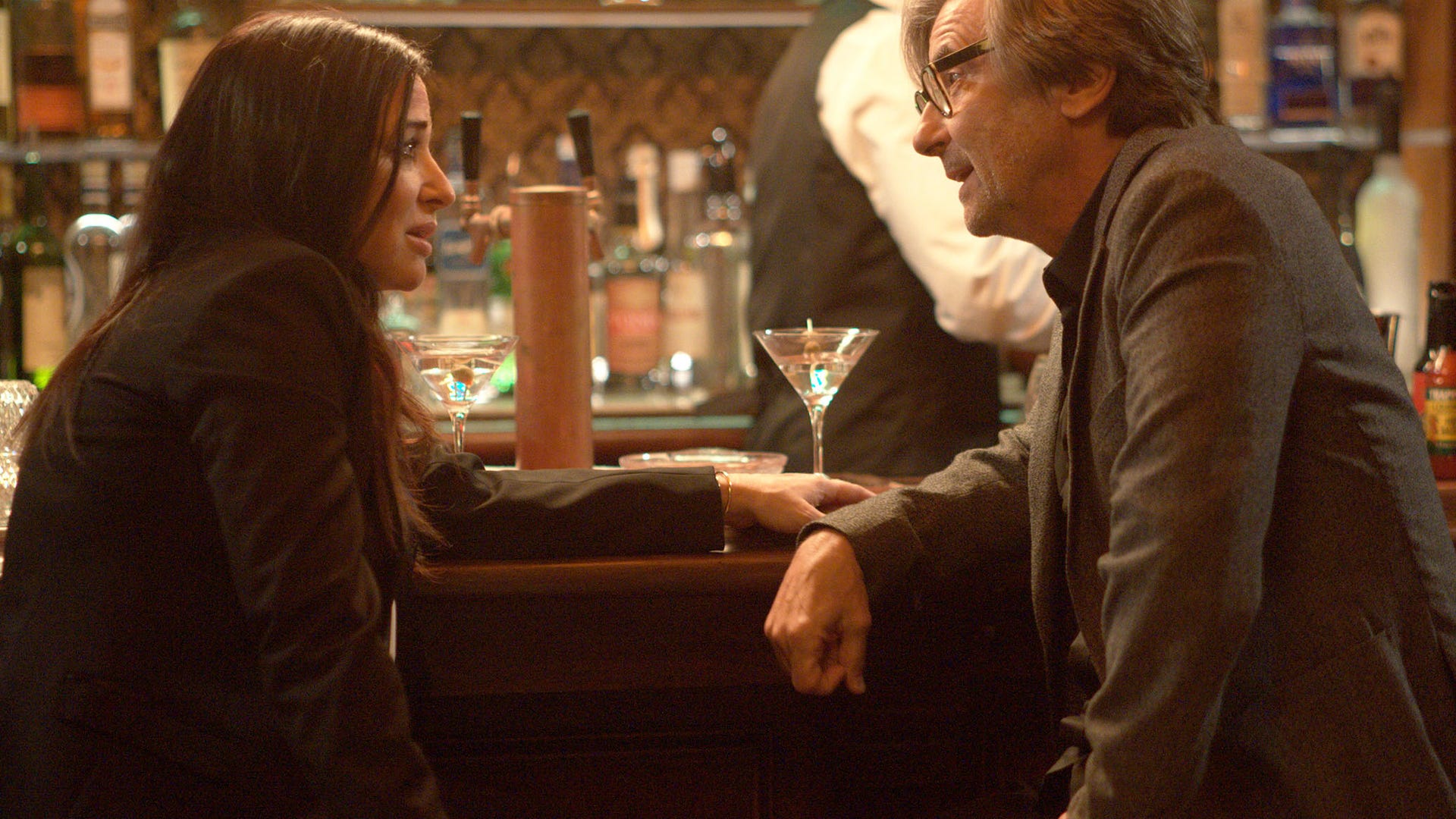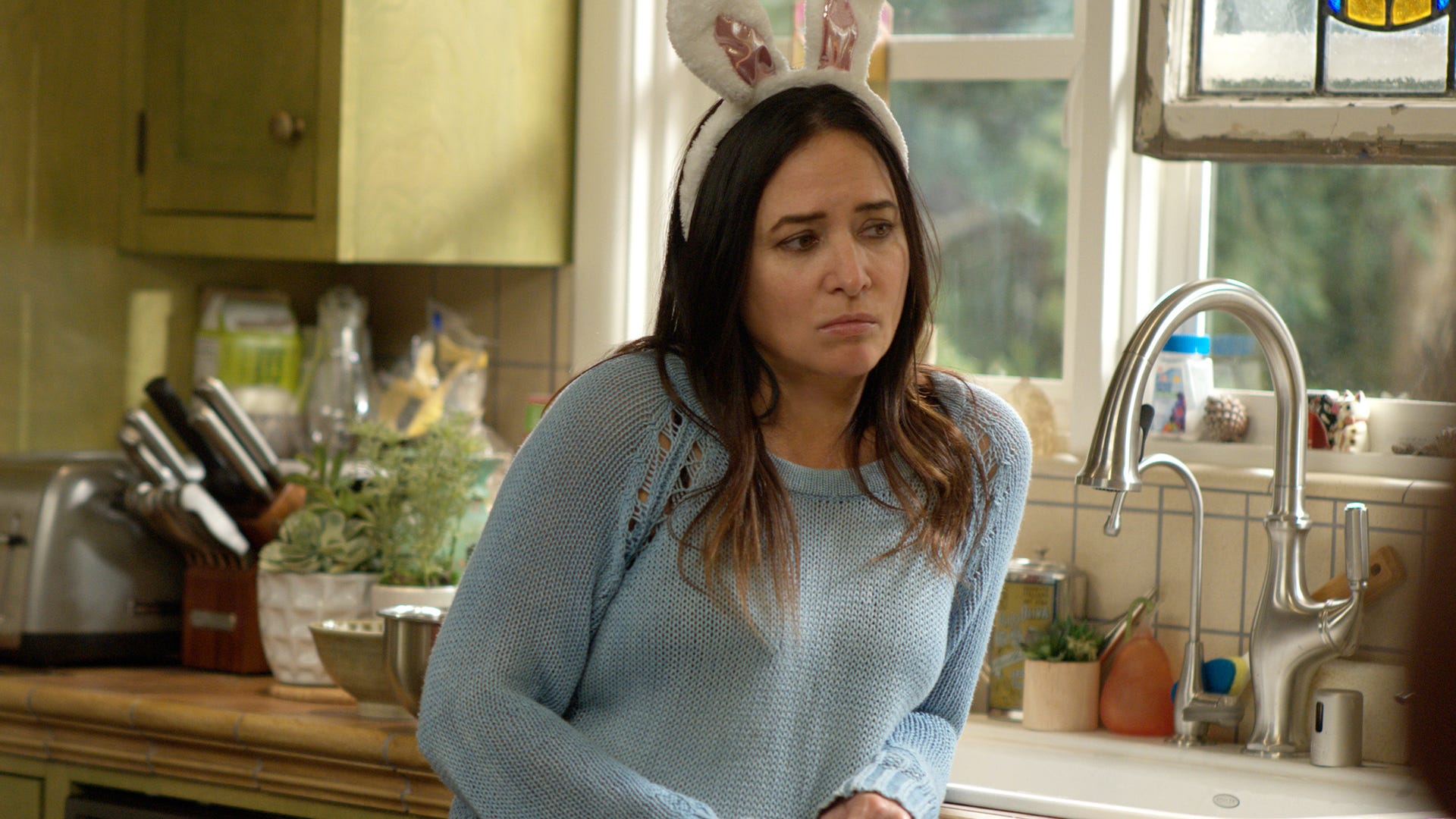Join or Sign In
Sign in to customize your TV listings
By joining TV Guide, you agree to our Terms of Use and acknowledge the data practices in our Privacy Policy.
Better Things' Pamela Adlon Reveals How Big Changes Behind the Scenes Became a 'Hidden Blessing'
This season explores a rarely seen side of womanhood
Pamela Adlon's Better Thingsarrived in 2016 with near instant critical adoration and, soon after, Emmys recognition for Adlon herself, who scored consecutive nominations in the lead comedy actress category for her semi-autobiographical portrayal at the heart of the show. While the whole series is brilliant, there's no season that deserves an Emmy nomination -- and win, for that matter -- more than the recently finished third.
Before Season 3 even began, Adlon was faced with the show's co-creator and her longtime collaborator, Louis C.K., admitting to multiple instances of sexual misconduct. ("These stories are true," Louis C.K. said in a statement in November 2017 after the New York Times reported five women had alleged Louis C.K. had masturbated in front of them or asked if he could masturbate in front of them.) Louis C.K. was soon fired from FX, leaving Adlon with the difficult decision of continuing the show without the person who co-created and co-wrote the series with her. After months of consideration, she jumped back into production, hiring her first writing team and moving forward without the cloud of Louis C.K.'s behavior hanging over the show.
The Best Shows of 2019 (So Far)
"Going into Season 3, I've never been in a writers' room, let alone run a writers' room," Adlon told TV Guide over the phone. "I'm the daughter of a writer, and my dad [writer Don Segall] was always working on his own projects, and so it was not an organic thing for me. I really had to learn how to do that, and read people and create a room, and find a new way to make my show. It turned out to be a hidden blessing. Out of the fire comes a beautiful, blossoming new thing, and it was an incredible journey for me."
Adlon hired four writers who knew how to perfectly capture the essence of what she wanted to bring to the show, including one of her best friends, Robin Ruzan, who co-wrote the 12 episodes this season. "[Robin] said something to me that was very profound, which is, 'You've been percolating this show for 50 years.' She said, 'We are there to help you hone your vision,'" recalled Adlon. "It's not about pitching ideas or how about this for Sam, or how about this for Max, it's about mining experiences that I have had, that different writers in my room have had, that maybe their children have had, that I had as a kid, or my maybe my kids have had, and it's the wonderful way these rooms work if everybody's in tandem, working towards this singular voice and vision."

Pamela Adlon and Griffin Dunne, Better Things
FXThis season is a big one for Sam, who is loosely based on Adlon, as she grapples with turning 50, going through menopause, and the existential crises that come with getting older -- moments that women aren't often given onscreen. In one scene during the beginning of the season, we see Sam as she struggles to find anything that fits in her closet and notices that her body's changed. "All of a sudden it's like you're this number that sounded like the oldest thing in the world when you were young, and now when you barrel through your life, and certainly in the case of this character, she has one kid, two kids, three kids, all of sudden, boom. There's this number that's like an actual, oh, you're more than halfway through. This is crazy. What are you going to do?" Adlon told us.
"It is very interesting to see what it's going to be like for her, because I really have tried to make Sam like an everyman, just the idea of an anti-hero because that means human, so it's fun to see through her eyes how she's going to deal with the next phase," she added.
Besides dealing with the superficial aspects of middle age changes, like struggling to button your jeans, this season explores Sam's dynamic with her late father, Murray (Adam Kulbersh). He first appeared in the pilot, speaking to Sam as she dozes off next to Duke (Olivia Edward), saying that something he wrote has potential to be turned into a TV show. But in the third season, we get to learn more about him, as he begins to make visits to Duke and Sam, who imparts his advice to Sam during difficult moments (Whether his visits are imagined or actually happening is up to the viewer's interpretation).
Emmys 2019: Complete Coverage of the 71st Primetime Emmy Awards
Sam's connection to her father comes at a time when her relationship with her mom, Phyllis (Celia Imrie), is strained, as her mental health begins to deteriorate. Murray's visits are comforting, but simultaneously a reminder for Sam that he didn't make it to 50, making her feelings about reaching that milestone feel even more complex. "The way these two storylines connected worked out so beautifully for me," she said.
But Sam is also haunted by something far less pleasant throughout the season: unwanted sex dreams of her ex-husband, Xander (Matthew Glave). Sam continues to be tormented by those nightmares until she takes matters into her own hands and begrudgingly decides to meet up with Xander, but their sexual rendezvous doesn't pan out. "I wanted to create this mysterious, weird, uncomfortable moment, and then when she throws the boots in the garbage can, and the can goes clangy, clangy, clang -- it's a finality. It's her getting past those demons," explained Adlon.
In the series, Adlon's character, Sam, wrestles with wanting to fulfill her sexual desires with wanting to focus on herself. She's already spread thin between her three daughters and isn't interested in including someone else whom she has to focus on into the mix. At one point, she begins a romance with her therapist, David (Matthew Broderick), who was a summer camp love as a teen, but she ultimately decides to not take it any further. For Adlon, it was essential to show that Sam doesn't need a man to feel fulfilled.

Pamela Adlon, Better Things
FX"It's massively important because single people are looked at like women are ... spinsters, [that's what] used to be the old term. Everybody is trying to fix you when you're single," she said. "When I don't think that a lot of single people want to be fixed. I mean, I'm a single person, I don't want to be fixed, but I'm fortunate because I have work and I have my children, I have my friends, and that's very fulfilling for me."
Adlon incorporates much of her own experiences in Sam's story, including small nods to various points of her career, including a sweet scene where her daughters are dancing and singing along to the Phineas and Ferb theme song, a Disney Channel show on which Adlon voiced various characters. But Adlon isn't necessarily trying to write her life story. Instead, she's creating engaging, relatable stories that resonate with viewers. "It's all therapy for me, and it's therapy for other people, and one of the great joys of the show is: Did this really happen? Did that really happen? Well, it doesn't really matter because I'm making stories and colors and music for people with things that feel real and authentic whether they are or not," she said.
That authenticity is the magic of Better Things, that just makes it keep getting better.
